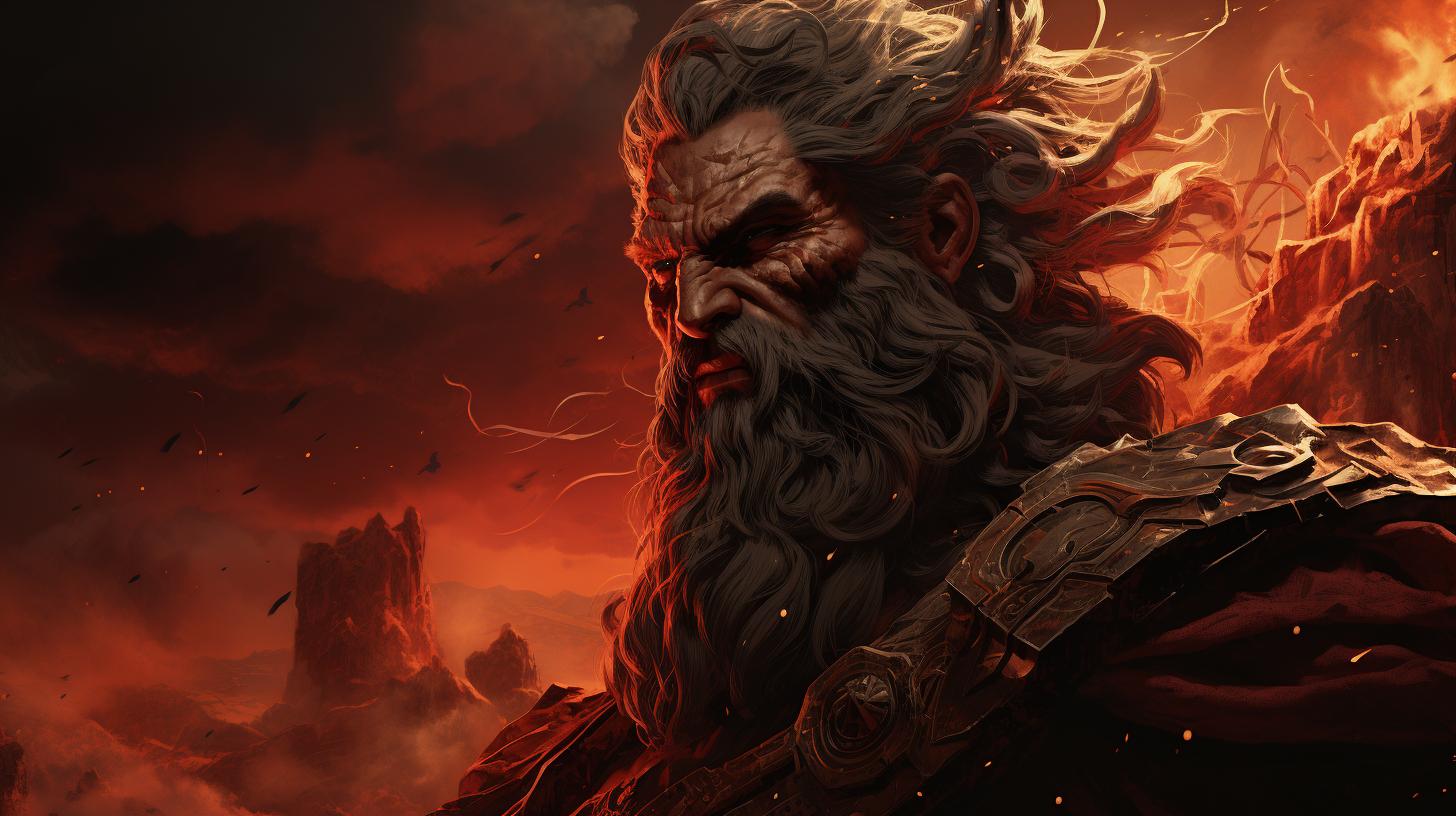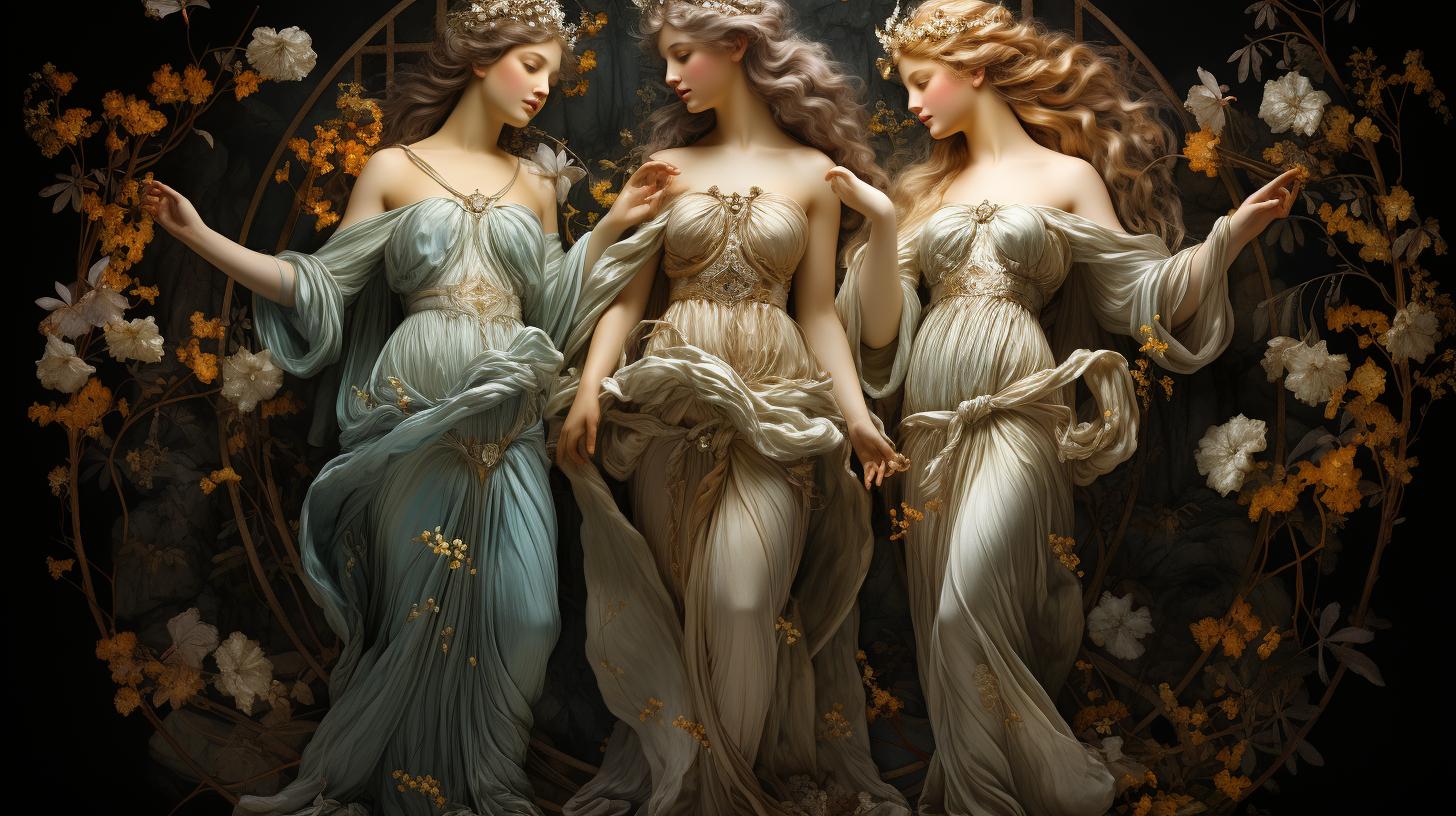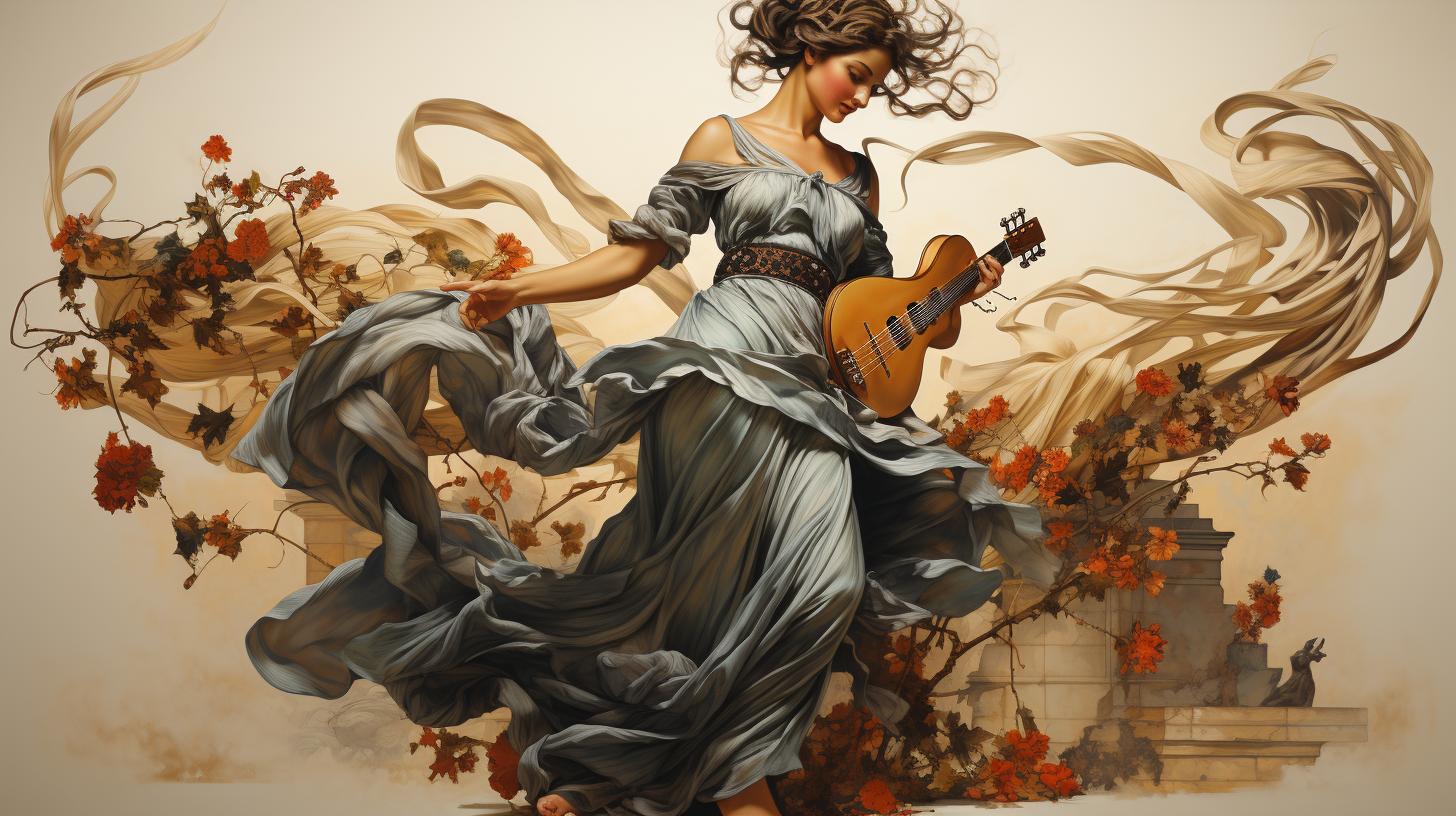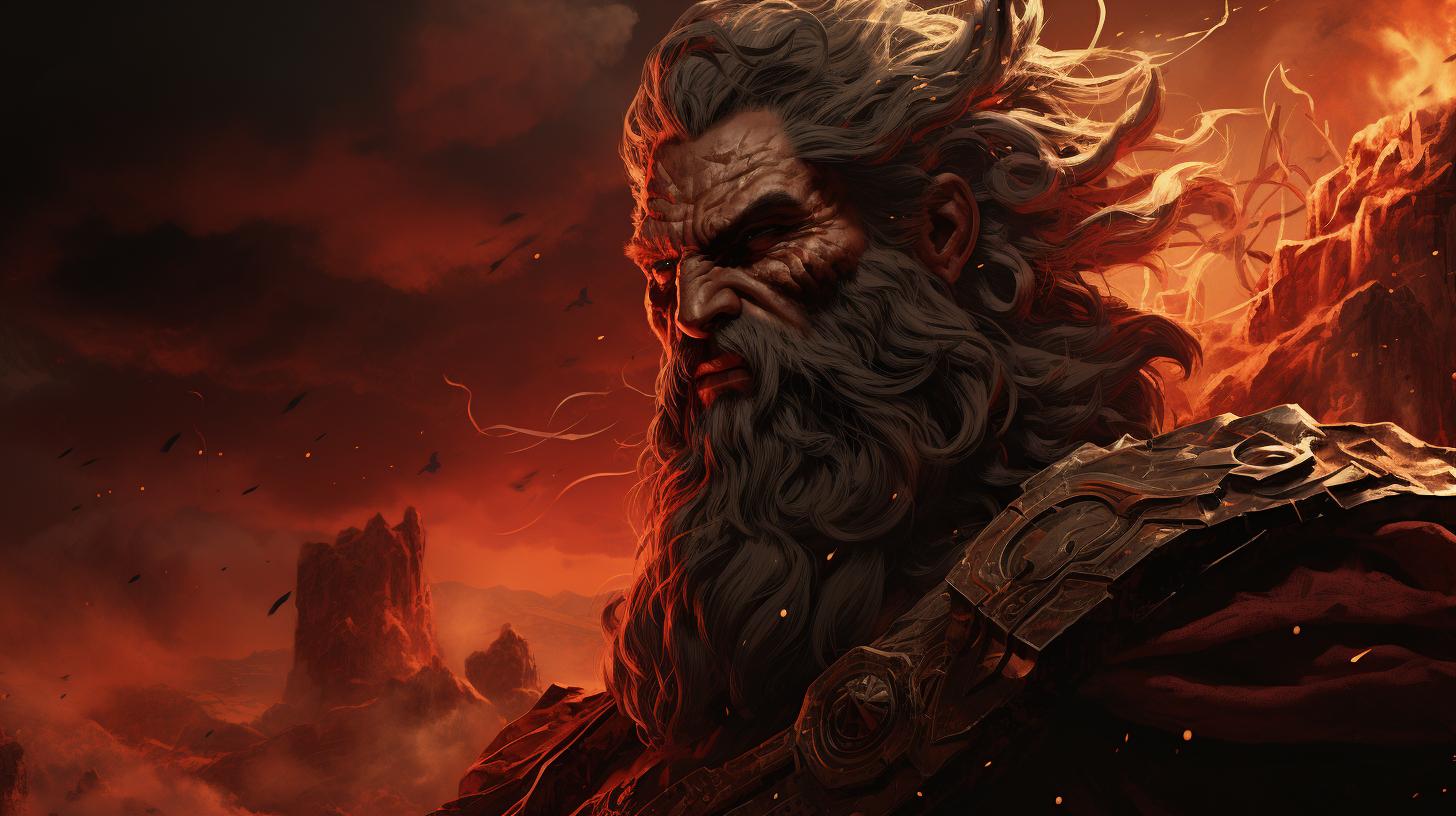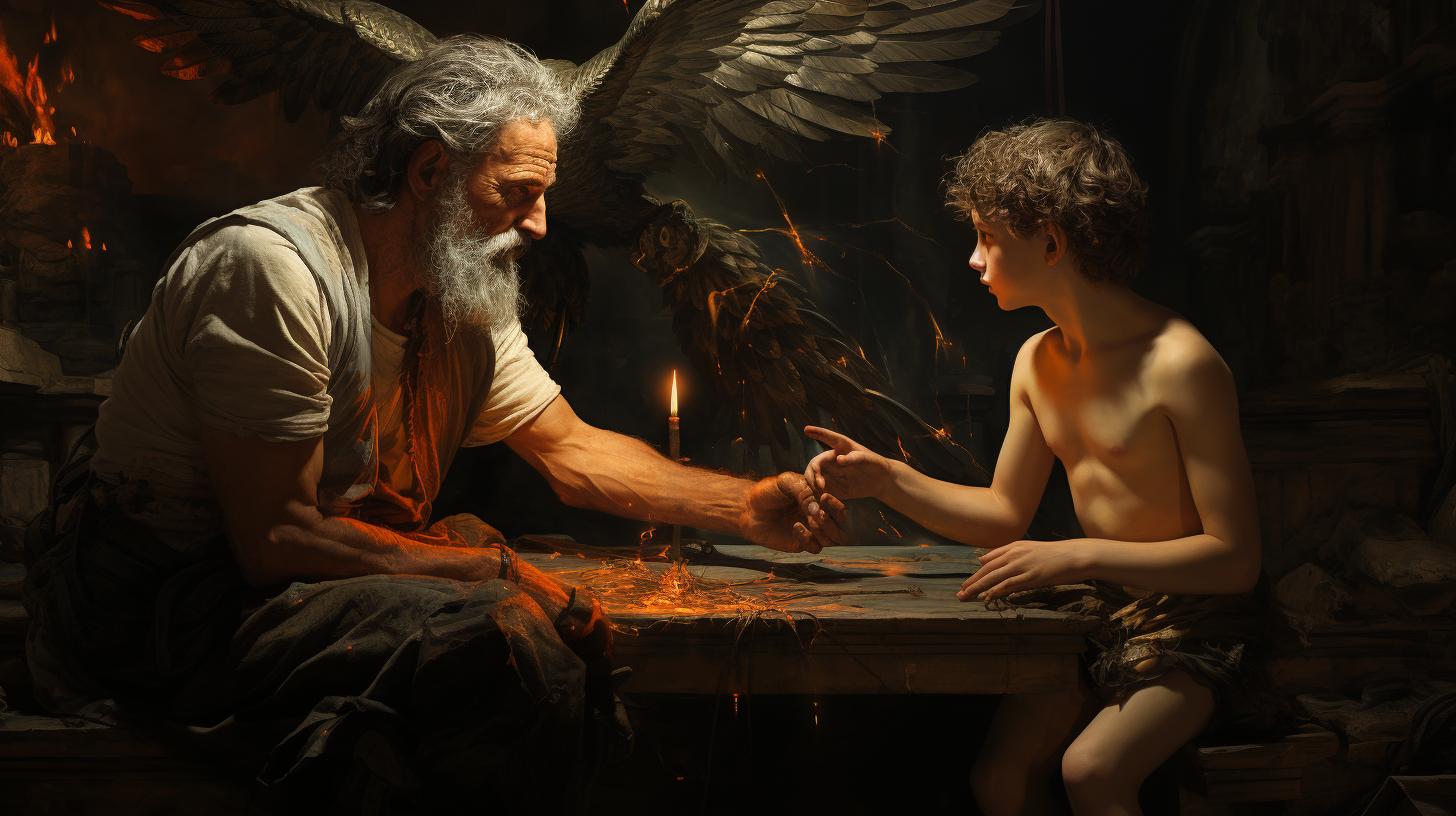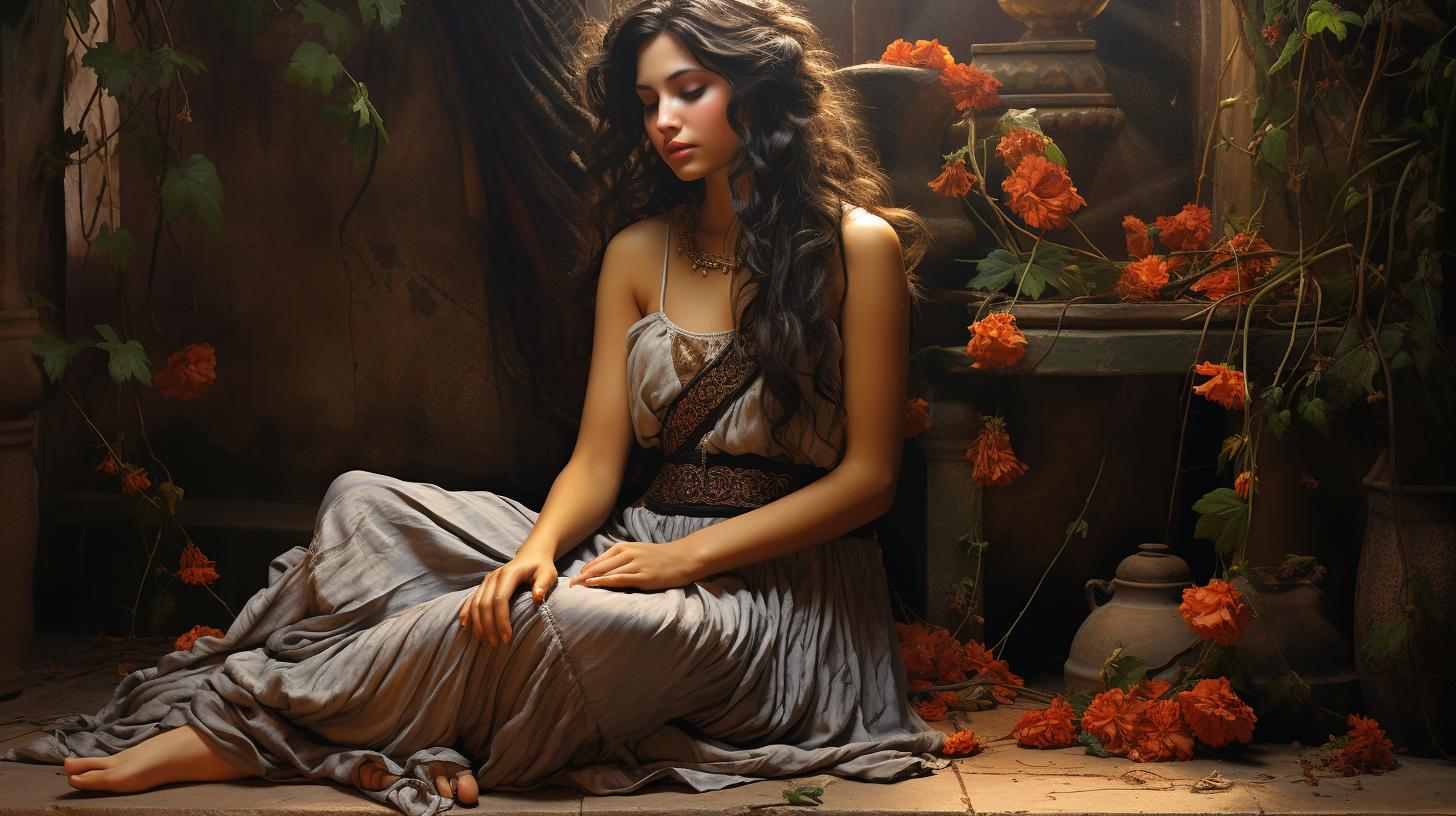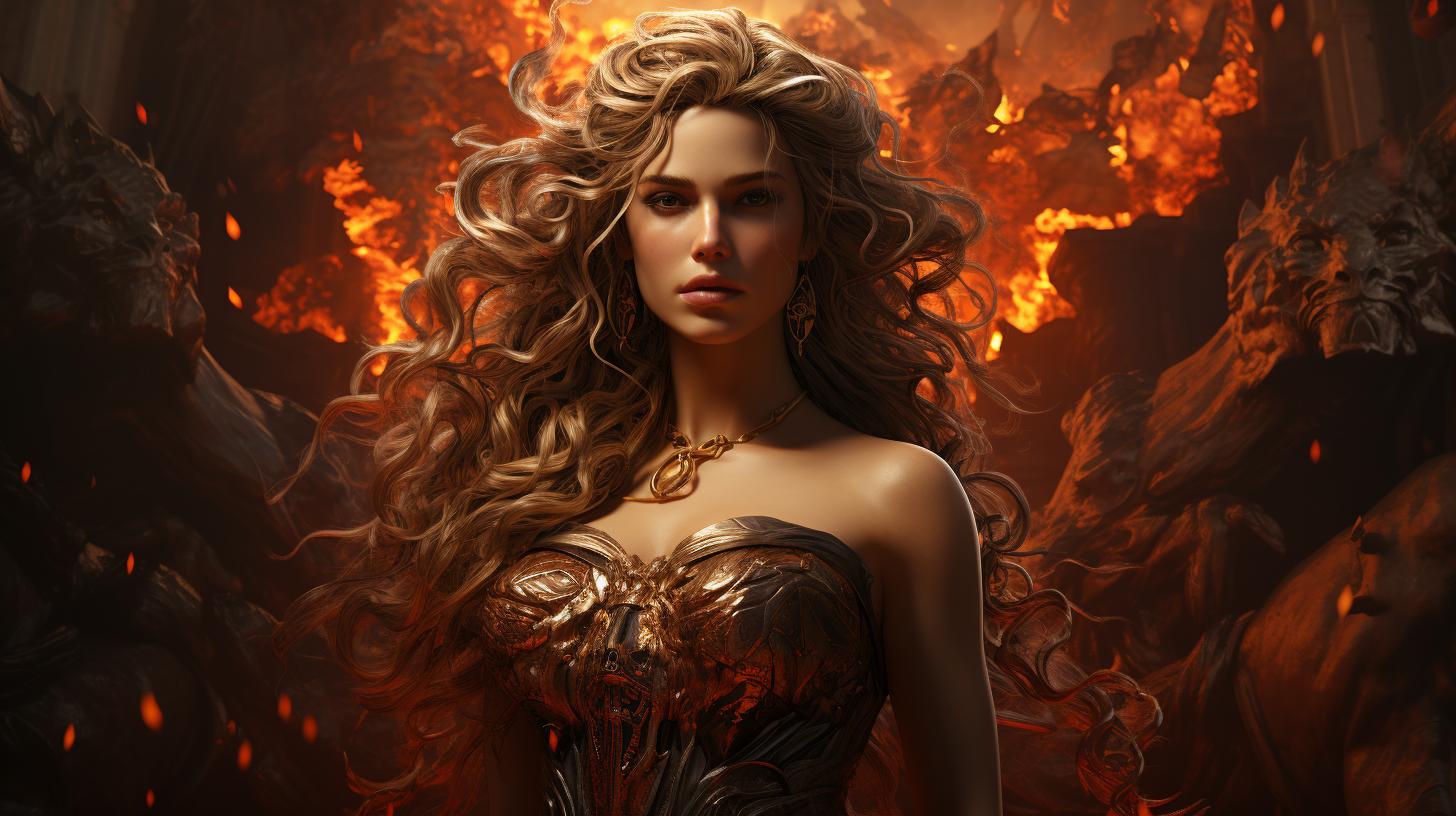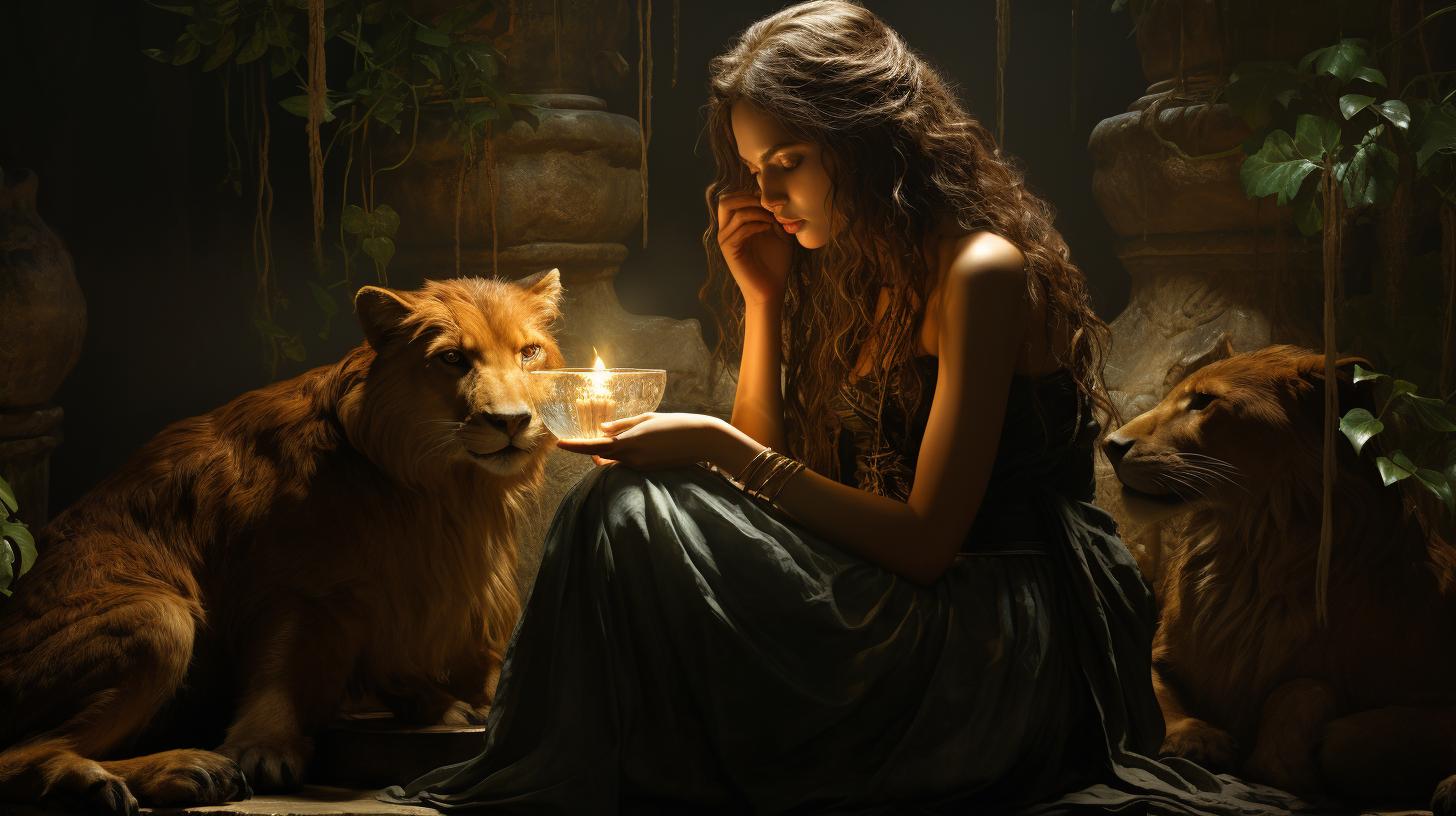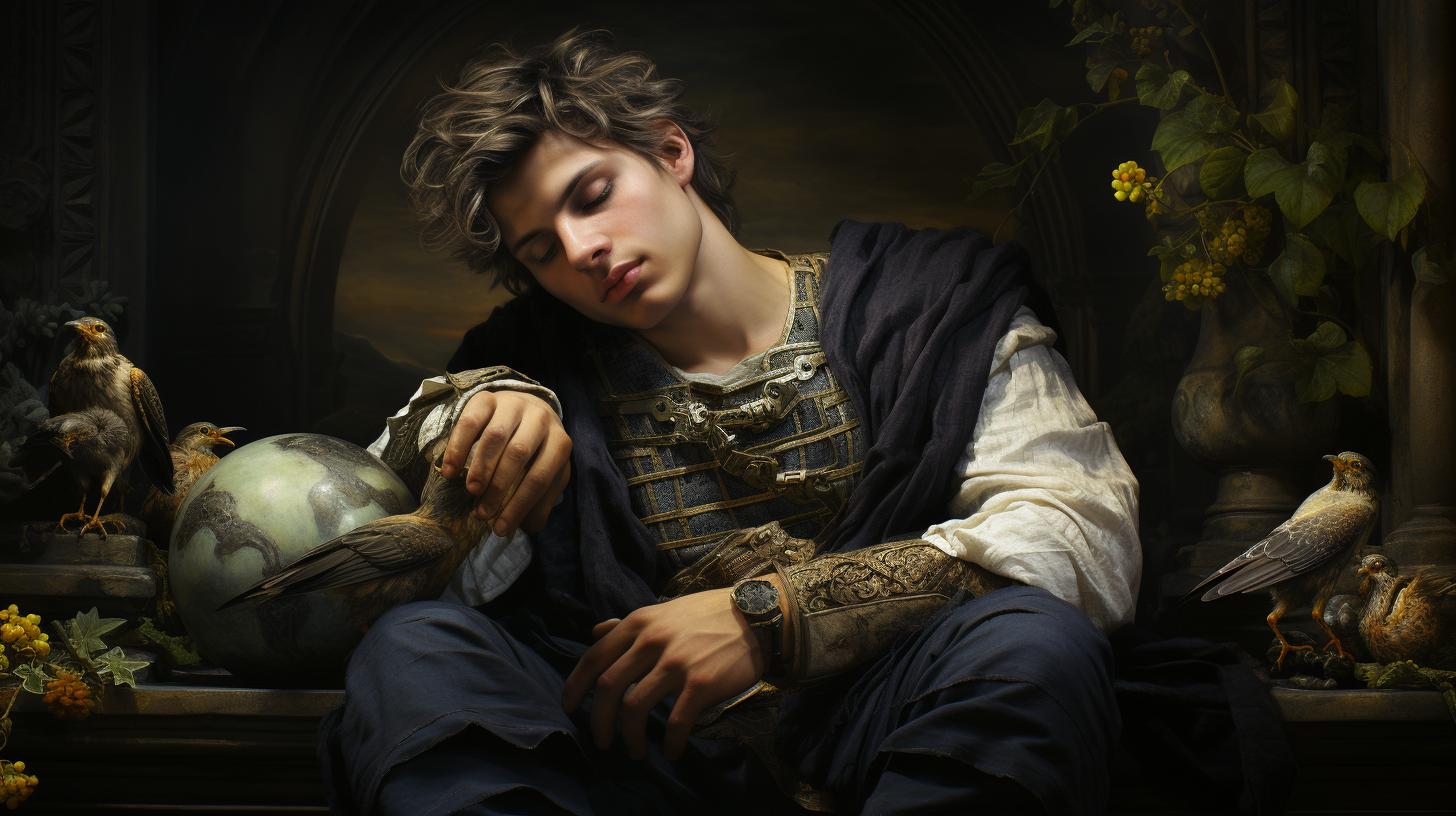What is Deimos the God of? Exploring the Ancient Greek Deity’s Domain
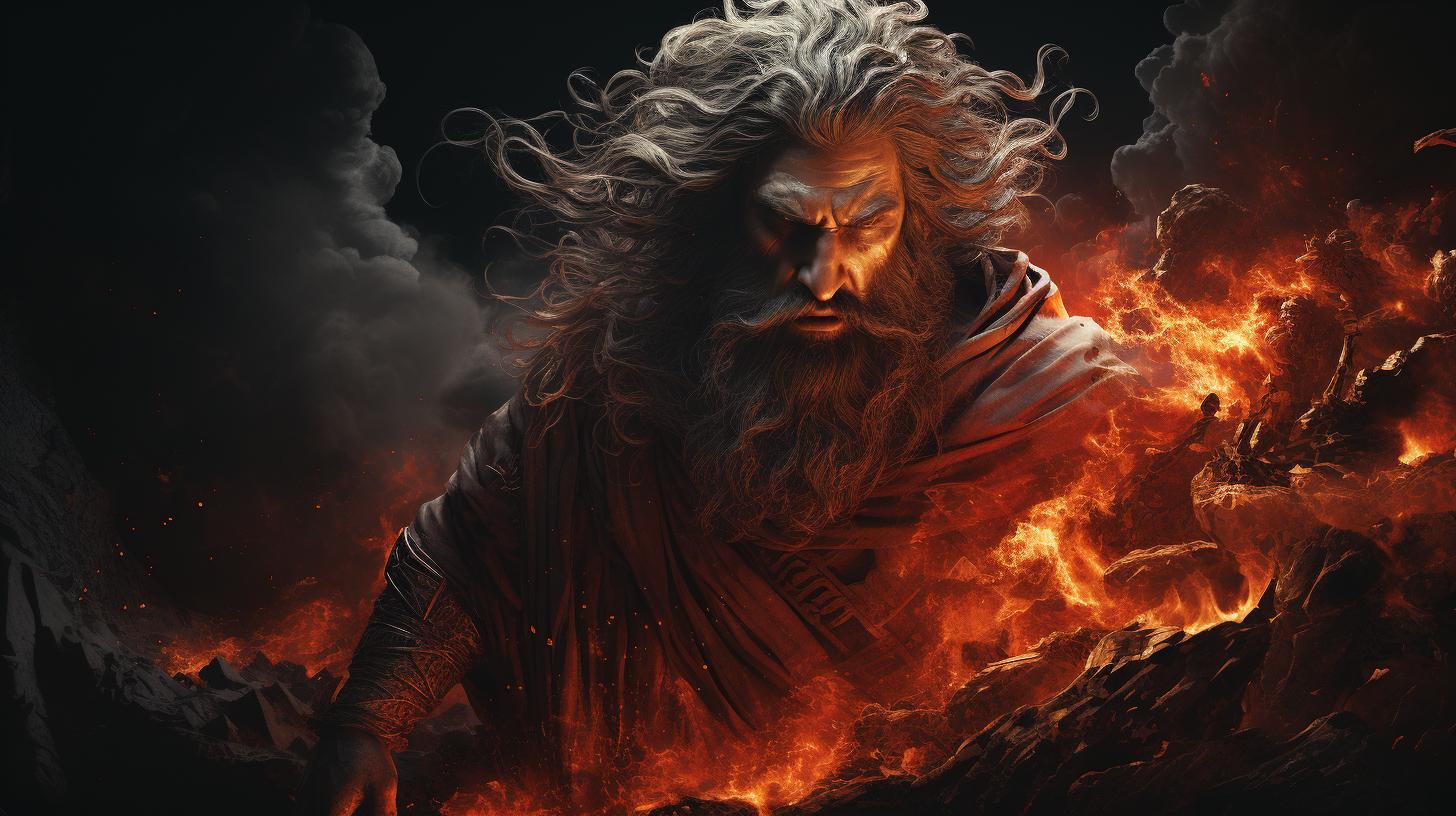
Deimos, in Greek mythology, is a god associated with fear. He is often depicted as a companion of his brother Phobos, personifying terror and panic. Born from the union of the war god Ares and the goddess of love Aphrodite, Deimos holds a significant role in ancient Greek mythology.
This article explores the origins, powers, and mythology surrounding Deimos, shedding light on the god of fear and his place in Greek culture.
Mythology
Ancient Greek Mythology
Ancient Greek mythology is filled with fascinating tales, gods, and beings that shaped the beliefs and culture of the Greek civilization. These myths often depicted the struggles, conflicts, and adventures of the gods and their interactions with mortals.
Deimos: A Greek God of Fear
Within the pantheon of Greek gods, Deimos holds a significant role as the personification of fear. He is often associated with his brother Phobos, who represents panic. Together, they form a formidable duo that incites terror and dread in both mortals and gods alike.
According to ancient Greek mythology, Deimos is the offspring of Ares, the god of war, and Aphrodite, the goddess of love. This union between two seemingly opposing forces results in the creation of a god whose essence embodies the fearsome and destructive aspects of warfare.
Deimos’ domain lies in the realm of psychological fear. He instills dread and apprehension in the hearts of soldiers before they enter battle, undermining their confidence and resolve. The mere mention of his name strikes fear into the hearts of mortals, and his presence on the battlefield symbolizes the impending terror and chaos that accompanies war.
In Greek art and literature, Deimos is often depicted as a young, ordinary-looking individual. However, he is occasionally portrayed with leonine characteristics, symbolizing the ferocity and primal nature of fear.
Origins and Family
Deimos is the son of Ares, the god of war, and Aphrodite, the goddess of love.
Their union gives rise to a god whose purpose is to spread fear and terror.
Role in Greek Mythology
In ancient Greek mythology, Deimos plays a crucial role as the embodiment of fear, particularly in the context of warfare. He accompanies his father Ares into battle, spreading terror among enemies and fueling chaos on the battlefield.
Depictions in Art and Literature
Deimos is often depicted as a young, ordinary-looking individual in Greek art. However, there are instances where he is portrayed with a lion’s head, symbolizing his association with primal fear and ferocity.
Deimos: The God of Fear
Origins and Family
Deimos, a prominent figure in Greek mythology, is known as the god of fear. He is the son of Ares, the god of war, and Aphrodite, the goddess of love.
According to ancient Greek mythology, Deimos is born into a divine lineage, inheriting the traits of both his powerful parents. This familial background contributes to his significant role in Greek mythology and his association with the concept of fear.
Role in Greek Mythology
In Greek mythology, Deimos holds a vital position as the personification of terror and dread. He plays a significant role in influencing the emotions and actions of mortals, often accompanying his father Ares into battle.
Deimos is described as a relentless force that instills fear and distress among warriors, leading to chaos and uncertainty on the battlefield. His presence in myths and stories showcases the destructive and paralyzing nature of fear.
Depictions in Art and Literature
Throughout classical art and literature, Deimos is depicted in various forms. In visual representations, he is often portrayed as a youthful figure. However, sometimes he is shown with leonine attributes, particularly a lion’s head, emphasizing his ferocity and association with fear.
Deimos appears on Agamemnon’s shield, serving as a symbolic reminder of the dread that accompanies war. His presence in ancient artwork and literature further reinforces the significance of fear as a driving force in Greek mythology.
Powers & Abilities
Deimos, the Greek god of fear, possesses a range of powers and abilities that have left a significant impact on mythology and ancient culture. Let’s explore his notable attributes:
Influence on Mortals
Deimos holds tremendous influence over mortal beings, provoking fear and terror within their hearts.
People believed that his mere presence could sow discord and panic on the battlefield, crippling enemy forces and causing soldiers to flee in terror.
Association with Ares and Enyo
Deimos shares a close association with his father, Ares, the god of war, and his sister Enyo, the goddess of destructive warfare. Together, they form a formidable trinity, driving warriors to engage in ruthless combat and fueling the chaos of battle.
Mention in Epic Poems
Deimos is mentioned in various epic poems, further emphasizing his prominence in Greek mythology. Notably, Homer references him in the Iliad, where Deimos is described as one of the forces instigating fear and panic, along with Phobos and Eris, goddess of strife.
This portrayal showcases Deimos’ integral role in perpetuating the horrors of war and its psychological impact.
Ultimately, Deimos’ powers and abilities exemplify his dominion over fear and its profound effects on the mortal realm, solidifying his significance within ancient Greek mythology.
Phobos: The God of Panic
Phobos, the brother of Deimos, is the Greek god of panic. While Deimos represents terror and fear, Phobos embodies the overwhelming feeling of panic and the instinct to flee.
Let’s explore the relationship between Phobos and Deimos, their symbolism and representations, as well as their mythological connections.
Relationship with Deimos
Phobos and Deimos are often depicted together, as inseparable companions on the battlefield. While Deimos represents the terror that freezes warriors in fear, Phobos embodies the panic that drives them to flee from danger.
Together, they create a powerful and paralyzing effect, shaping the outcomes of battles and instilling chaos in the hearts of mortals.
Symbolism and Representations
In Greek art and literature, Phobos is commonly represented as a young man, sometimes with a lion’s head. This symbolizes his connection to fear-inducing creatures and his association with the wild and untamed aspects of nature.
His presence on the battlefield is a constant reminder of the fragility of life and the unpredictability of war.
Mythological Connections
Phobos is closely associated with Ares, the god of war, and is often depicted as his attendant. Additionally, Phobos’ sister, Enyo, the goddess of destruction, represents the chaos and devastation that war brings.
Together, they form a formidable trio, driving mortals towards their darkest fears and inspiring chaos on the battlefield.
Phobos’ significance in Greek mythology goes beyond his role as a god of panic.
His influence extends to the realms of psychology and human nature, highlighting the inherent fear and vulnerability that underlie human actions and decisions, particularly in times of conflict.
Overall, Phobos plays a vital role in the pantheon of Greek gods, representing the intense and paralyzing fear that can grip individuals and societies.
He complements his brother Deimos, together embodying the full spectrum of terror and panic that can shape the outcome of battles and the course of human history.
The Deimos and Phobos Relationship
The relationship between Deimos and Phobos, the two fearsome Greek gods, is both intertwined and distinctive.
They share a deep connection as brothers and personifications of fear, yet each possesses unique characteristics that set them apart.
The Shield of Agamemnon
One notable mention of their relationship is found in the Shield of Agamemnon, a renowned artifact in Greek mythology. In its intricate design, Deimos and Phobos were inscribed, symbolizing the omnipresence of fear in times of war.
This depiction emphasizes their inseparability and their pervasive influence in the realm of mortals.
Distinction between Deimos and Phobos
While Deimos and Phobos are often mentioned together due to their shared nature of fear, there are distinct differences in their roles and characteristics. Deimos, representing terror and fear, focuses on instilling a sense of overwhelming dread within individuals.
Phobos, on the other hand, embodies panic and the urge to flee, driving mortals to succumb to their instinctual reactions.
The distinction between these two gods of fear showcases the multifaceted aspects of terror experienced by humans.
Deimos evokes a paralyzing, all-consuming terror, while Phobos incites a chaotic panic leading to hasty actions.
It is worth noting that while they have separate roles, Deimos and Phobos still work in harmony, creating a symphony of fear within the Greek mythological realm.
Their simultaneous presence amplifies the intensity of fear experienced by mortals during times of conflict and adversity.
Cult and Worship of Deimos
Deimos in Ancient Greek Religion
Deimos held a significant place in ancient Greek religion, particularly in relation to the worship of Ares, his father, and Aphrodite, his mother. As the personification of fear, Deimos was invoked by warriors seeking divine assistance in battle.
Soldiers would make offerings and sacrifices to him, hoping to inspire fear in their enemies and gain an advantage on the battlefield. Deimos’ presence was believed to empower warriors with courage and instill terror in their adversaries, making him an important figure in martial rituals and prayers.
In temples dedicated to Ares, Deimos was often worshipped alongside his father as a fearsome deity to invoke for victory and protection. Devotees would make offerings of weapons, armor, and blood, symbolizing the violence and power associated with war.
Additionally, cult statues and holy images of Deimos were erected in sacred spaces, serving as focal points for worship and reverence.
Decline of Deimos’ Cult
Over time, as the influence of ancient Greek religion waned and gave way to other belief systems, including the rise of Christianity, the cult of Deimos experienced a decline.
With the fading popularity of war-centered deities, the worship of Deimos gradually diminished. This decline was also influenced by the emphasis on more benevolent and peaceful gods, such as Zeus and Apollo, who represented wisdom and healing.
By the late Hellenistic period and the dominance of Roman culture, the worship of Deimos had dwindled, and his significance in religious practices had largely diminished. However, remnants of his association with fear and war can still be found in various ancient temples and archaeological remains, offering a glimpse into the once-vibrant worship of this formidable god of fear.
Legacy and Modern References
Deimos and Phobos, the Greek gods of fear and panic, have left a lasting legacy in various aspects of human culture. From astronomy to popular culture, their influence can be observed in different domains.
Deimos and Phobos in Astronomy
The names of Deimos and Phobos have been immortalized in the field of astronomy. These names were given to the two moons of Mars, which were discovered in 1877 by American astronomer Asaph Hall.
Deimos and Phobos play significant roles in the study and exploration of the Red Planet.
Influence in Popular Culture
The themes of fear and terror associated with Deimos and Phobos have found their way into popular culture. Books, movies, and video games often draw inspiration from Greek mythology, incorporating these deities as symbolic representations of fear and dread.
Their presence adds depth and intensity to various storytelling mediums.
Deimos and Phobos in Literature and Media
Deimos and Phobos have made appearances in numerous works of literature and media. Whether it be classical literature or modern adaptations, their roles as gods of fear and panic have been explored and depicted.
They are often portrayed as formidable forces that evoke terror and chaos, adding suspense and excitement to the narratives they inhabit.
- Classic books like “The Iliad” by Homer and “Metamorphoses” by Ovid feature references to Deimos and Phobos, highlighting their significance in ancient Greek mythology.
- Contemporary novels and fantasy series often incorporate these deities as captivating characters, enhancing the depth and complexity of the stories.
- Hollywood movies and television shows draw upon the ancient tales, bringing Deimos and Phobos to life on the big screen, captivating audiences with their fearsome presence.
- Video games frequently incorporate Deimos and Phobos as powerful antagonists, challenging players to face their deepest fears and overcome daunting obstacles.
The enduring presence of Deimos and Phobos in literature, film, and other forms of media showcases their cultural significance and the timeless fascination with the themes they represent.
Fan Feed and Discussions
Welcome to the Fan Feed and Discussions section, where we explore common questions, interpretations, community engagement, and theories surrounding Deimos, the Greek god of fear. Join the conversation and dive deeper into the fascinating world of this ancient deity.
Common Questions and Interpretations
- Is Deimos the same as Fear itself?
- What role does Deimos play in ancient Greek mythology?
- How does Deimos interact with other gods and goddesses?
- What is the significance of Deimos’ representation with a lion’s head?
Community Engagement and Theories
The community surrounding Deimos and Greek mythology has sparked numerous discussions and theories.
Here are some popular topics:
The Fear Instigator
- Exploring Deimos’ role as an instigator of fear in mortals
- Interpretations of Deimos’ presence in battles and conflicts
- Comparisons with other gods associated with fear
Deimos and Enyo: Siblings in War
- Examining the relationship between Deimos and Enyo, the sister of Ares
- Speculations on their combined influence in warfare
- Analyzing their appearances together in ancient texts and artworks
Deimos and Phobos: The Dynamic Duo
- Investigating the unique bond between Deimos and Phobos
- Understanding their respective roles in instilling fear and panic
- Exploring their joint appearances in myths and depictions
Engage with fellow enthusiasts and contribute to the ongoing discussions.
The world of Deimos awaits!
.

